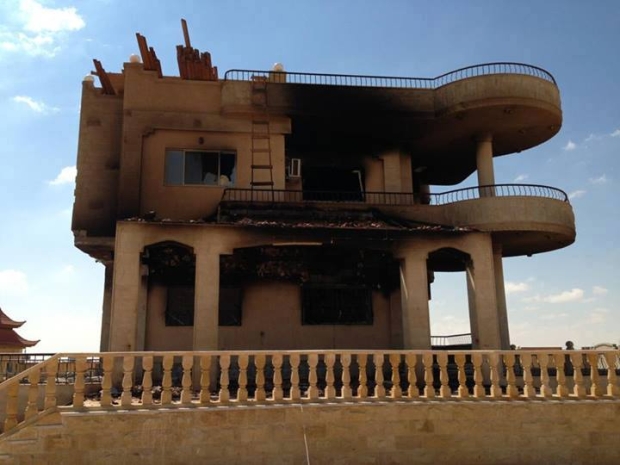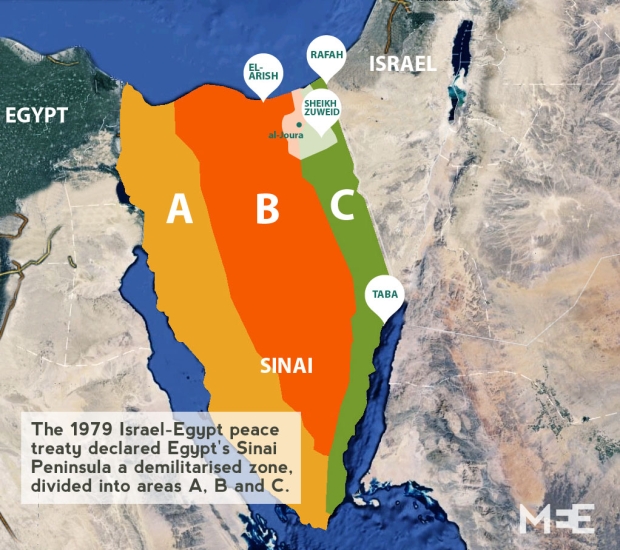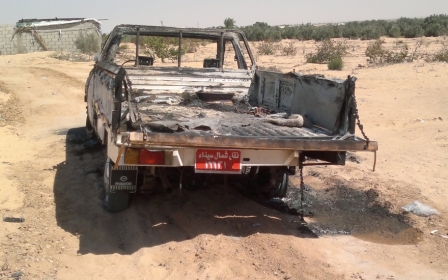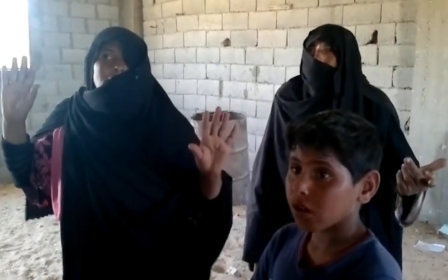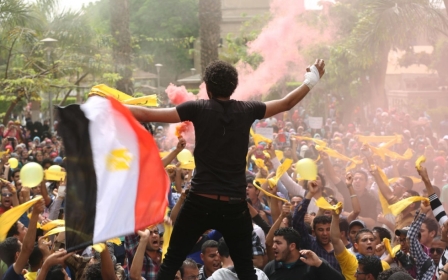Exclusive: Blood in the Sinai sand
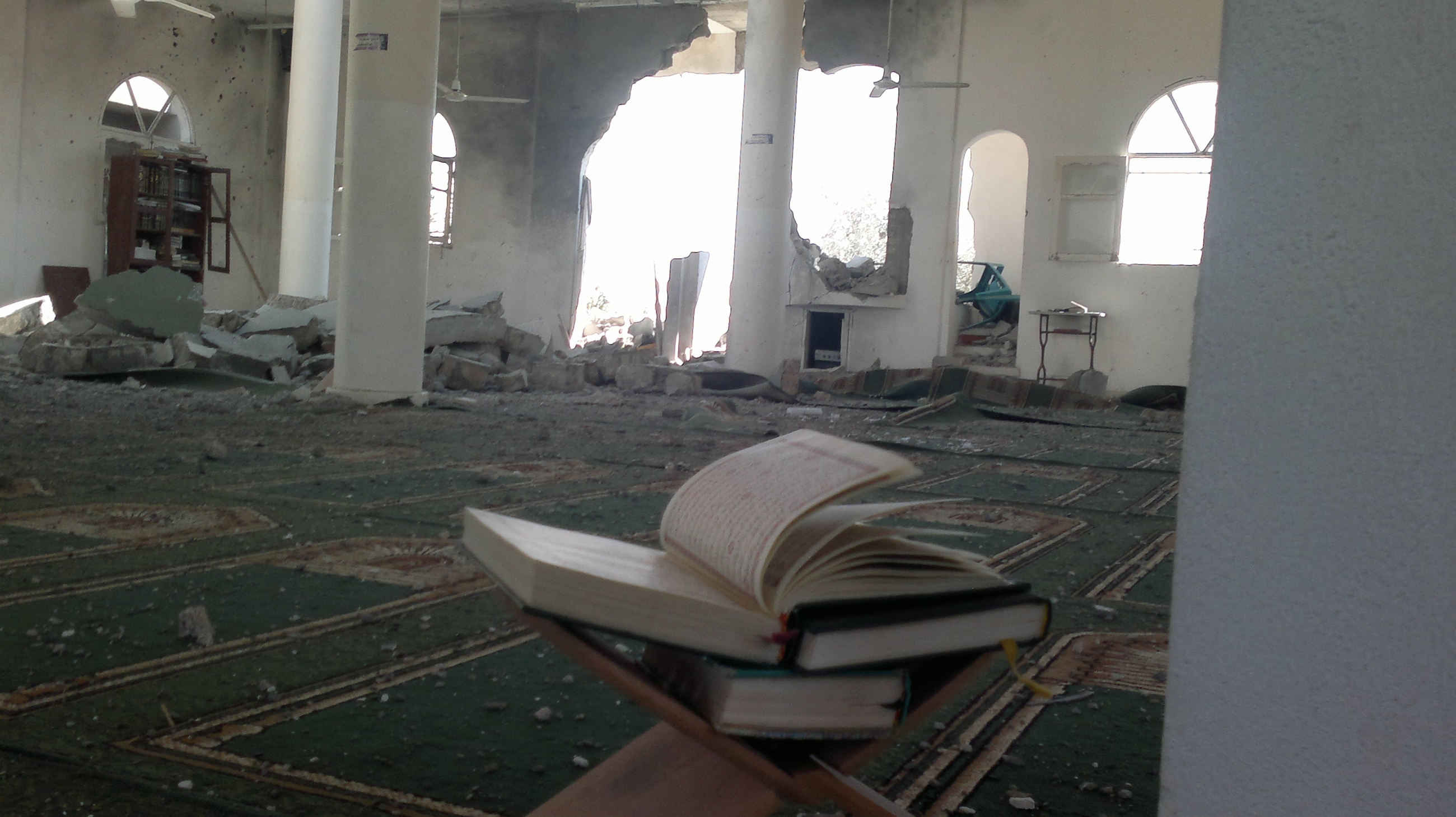
As Egypt marks Sinai Liberation Day on Friday, an exclusive report for MEE has found that up to 300 people, mostly civilians, have died in a brutal eight-month counter-insurgency campaign there by the Egyptian army.
First-hand accounts from the area, accompanied by rare footage and images, show that the army has used Apache helicopters, heavy artillery and rocket launchers in ongoing operations that have seen whole nomad villages razed.
Authorities say the majority of those killed in raids were “terrorists” involved in a lethal insurgency in the region, but testimonies given to MEE say the victims were predominately civilians killed by indiscriminate fire.
Family members of the 280 men killed insist that their loved ones were neither involved in any militancy nor wanted by the authorities, and locals say up to 12 children and eight women have been killed in the operations. The locals acknowledge that there were militants among the dead, but say these were just a fraction of those killed.
In press statements made to commemorate Sinai Liberation Day, Major General Mohamed Shahat, who heads operations in North Sinai, on Friday exposed the extent of the military involvement in the strategic peninsula.
New MEE newsletter: Jerusalem Dispatch
Sign up to get the latest insights and analysis on Israel-Palestine, alongside Turkey Unpacked and other MEE newsletters
According to Shahet there have now been 1,380 military operations in Sinai, in which 3,957 weapons have been seized. Almost 1,600 smuggling tunnels to Gaza have also been destroyed, leading authorities to announce that military was now in full control of the restive area.
In order to prevent further unrest, he said the military now plans to send in 25,000 troops to prop up the strong police presence in the area, with the deployment expected ahead of the 26 and 27 May vote.
Militancy has long been a thorn in the side of the Egyptian authorities - including during ousted president Mohamed Morsi’s tenure - and Sinai is seen as an origin of attacks which have hit the country in recent months. However, villagers say the military-backed government is implementing blanket retaliation against entire villages in the area.
Egyptian armed forces and police last week carried out a number of operations sweeping the villages of the north Sinai districts of Sheikh Zuweid and Rafah, with Apache helicopters, heavy military artillery and rocket launchers all used. Military sources have confirmed that these resulted in the destruction of dozens of homes and the burning of more than 70 primitive houses owned by nomadic families. More than 80 residents were arrested.
"Army troops entered the village at dawn Thursday and conducted searches inside the majority of homes in the village," said Abu Mohammed, a resident of the village of al-Mahdia. According to his testimony, once the security forces ended these searches, helicopters flew over them and fired rockets at a number of houses, destroying them and vehicles nearby. No apparent reason was given for the selection of the houses.
In a separate incident south of el-Arish City, after an Egyptian soldier was wounded from shrapnel from a roadside bomb, unknown gunmen started a shootout with the soldiers and policemen were targeted in the attack.
"The sound of the massive explosion shook our house and terrified the children," said Hajja Siham, a local of el-Arish City. She said she heard warning shots fired from heavy military weapons, adding that that “sound bombs” (flash-bang grenades) and flares were fired by the military. "The army fire prevented us from sleeping at night" she said. She also complained that during the day mobile phone networks are cut off, preventing people from communicating with their relatives until the evening.
Enforced blackouts
Military operations carried out by the army and police against armed groups are often accompanied by the cutting of mobile phone networks, landlines and Internet networks for up to 14 hours a day. The official reasoning is that mobile phones are used to detonate improvised explosive devices (IEDs) targeting of military units. But many of the locals feel it is more of a collective punishment strategy as IEDs are not triggered by landlines or Internet networks.
The military operations in the region are also endangering the lives of locals seen as close to the government. Last week, unidentified gunmen shot dead a tribal leader named Samir Abu Khartal, who is sheikh of the families in Qaber Aamir area, which lies east of al-Arish. Witnesses said the gunmen had intercepted his car on the Sheikh Zuweid-Arish road, specifically east of al-Shallaq area. They sprayed his body with bullets and it was later taken to al-Arish General Hospital, but the assailants fled the scene. The incident is not the first of its kind, as dozens of pro-government tribal leaders known to be supporting the army and police locally have been killed in Sinai.
As that attack was occurring, army tanks were shelling a medical centre in the village of al-Fitat, which is located south of Sheikh Zuweid City, saying that it harboured “terrorists”. The incident drew the ire of a local villager named Sheikh Salim. "The nearest hospital was around 20km away. A number of villagers were arrested in that operation and we have no idea about what has become of them since their arrest," the old man complained.
The interim government says it is engaged in a “war on terror”. But resentment is building in Sinai as the locals witness the destruction of their homes, schools, hospitals, mosques and buildings.
[To view more video footage by MEE correspondent Hossam Saeed, please visit the Sinai playlist at MEE YouTube channel]
The daily dangers facing the people of Sinai is likely to worsen following Wednesday’s announcement by the United States that it is allowing a sale of Apache helicopter gunships to the Egyptian military.
US Defence Secretary Chuck Hagel stressed that the 10 helicopters were being sent in support of counterterrorism operations in the the region. "The secretary noted that we believe these new helicopters will help the Egyptian government counter extremists who threaten US, Egyptian, and Israeli security," said Pentagon Press Secretary John Kirby.
Analysts have little doubt that these choppers will be turned on the population in Sinai. “There is a strong risk that these helicopters will be used in carrying out serious human rights abuses - basically collective punishment of entire communities - in the Sinai," Michelle Dunne, a former State Department Middle East specialist, told IPS.
Her views were shared by Maha Azzam, an Associate Fellow for the Middle East and North Africa programme at the London-based think tank Chatham House. "The resumption of some of the US military aid is very worrisome because the Egyptian government had targeted innocent civilians as a whole, not just in Sinai, and had been consistently violating human rights," Azzam told MEE. "The signal coming out of Washington is that the US is turning a blind eye to the situation there at a time when Egypt is witnessing a return to dictatorship," she added.
Origins of disorder
The methods being used by the Egyptian military mirror those seen during the rule of deposed dictator Hosni Mubarak, whose security apparatus would capture hundreds of unarmed civilians in Sinai and hold them without charge. Following the 2004 Taba and Sharm al-Sheikh bombings, where over 30 Egyptians and foreign tourists were killed, local rights groups reported unprecedented arrests of more than 5,000 people in the Sinai. Those detained included minors, children and the elderly - but there was no legal evidence held against them other than what is presumed to be reports by informants. The same strategy that was carried out in Sinai by the notorious Mubarak-era Interior Minister Habib al-Adli back then is being followed again today.
Israel withdrew from Sinai in early 1982 after signing the Camp David agreement with Egypt. Under the deal, Cairo must seek the approval of Tel Aviv before sending in the Egyptian army into the region. Cairo is also not allowed to have a significant military presence in what is referred to as Zone C. However, Israel has frequently given Egypt the go-ahead to deal with its foes there. A heavy-handed approach used by authorities in the 2005 operation is viewed locally as furthering the discontent among residents, who have long felt a sense of neglect by the authorities in Cairo.
The region's poor infrastructure has not witnessed any significant development in the past six decades. Residents say they are barred from joining the police, the army, the judiciary and even political parties. In many ways, the area has become almost separate from the rest of the country, with people needing to look for support from within their immediate environment. In addition to a lack of development and absence of sufficient state spending, reports of death and torture of innocent civilians since 2005 have fuelled further anger against the state. It has been estimated that year that some 600 women and minors were among those detained without charge and tortured .
Back then the list of those wanted by the state included 125 names. Although none of whom had any relations with al-Qaeda, they were blamed for the Taba and Sharm al-Sheikh attacks. Some of them tried to flee to the mountains, but one man, a dentist named Khalid Mossaid, was arrested and forced to testify against the other 124. According to an inmate of his who was later released, the authorities brought Mossaid's wife and began stripping her in front of him in order to get him to sign a confession. The police later told the locals that Mossaid was shot dead in the desert while trying to escape. Eventually up to 70 people on the wanted list are said to have been killed that way. Around 46 of them remained in jail until the January 2011 revolution when 39 of them managed to escape. However, the list of those wanted by the state has grown substantially since.
The fact that violence has spread and intensified since the July 2013 military coup that overthrew Mohamed Morsi, the first country's first democratically elected president, suggests it was the putsch itself and the crackdown on peaceful dissent that followed which opened the gates for this crisis in Sinai. Amnesty International says more than 1,400 people have been killed in security forces' crackdown against anti-coup protesters. And Egypt's official figures show about 500 people - mostly police and soldiers - have died as a result of bomb attacks and shootings by militants since July.
(MEE news editor Mamoon Alabbasi contributed to writing this report)
Middle East Eye delivers independent and unrivalled coverage and analysis of the Middle East, North Africa and beyond. To learn more about republishing this content and the associated fees, please fill out this form. More about MEE can be found here.


